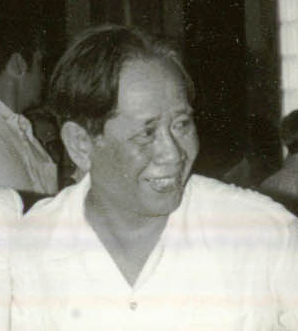Lê Duẩn
| Lê Duẩn | |
|---|---|

Lê Duẩn in 1978
|
|
| General Secretary of the Central Committee of the Communist Party of Vietnam | |
|
In office 10 September 1960 – 10 July 1986 |
|
| Preceded by | Hồ Chí Minh (acting) |
| Succeeded by | Trường Chinh |
| Secretary of the Central Military Commission of the Communist Party | |
|
In office 1981–1984 |
|
| Preceded by | Võ Nguyên Giáp |
| Succeeded by | Văn Tiến Dũng |
| Member of the Politburo | |
|
In office 1957 – 10 July 1986 |
|
| Member of the Secretariat | |
|
In office 1956 – 10 July 1986 |
|
| Personal details | |
| Born |
Lê Văn Nhuận 7 April 1907 Quảng Trị Province, French Indochina |
| Died | 10 July 1986 (aged 79) Hanoi, Vietnam |
| Nationality | Vietnamese |
| Political party | Communist Party of Vietnam |
Lê Duẩn (Vietnamese: [le zu᷉ən]; 7 April 1907 – 10 July 1986) was a Vietnamese communist politician. He rose in the party hierarchy in the late 1950s and became General Secretary of the Central Committee of the Communist Party of Vietnam (VCP) at the 3rd National Congress in 1960. He continued Hồ Chí Minh's policy of ruling through collective leadership. From the mid-1960s, when Hồ's health was failing, until his own death in 1986, he was the top decision-maker in Vietnam.
He was born into a lower-class family in Quảng Trị Province, in the southern part of French Indochina as Lê Văn Nhuận. Little is known about his family and childhood. He first came in contact with Marxist literature in the 1920s through his work as a railway clerk. Lê Duẩn was a founding member of the Indochina Communist Party (the future Communist Party of Vietnam) in 1930. He was imprisoned in 1931 and released in 1937. From 1937 to 1939 he climbed the party ladder. He was rearrested in 1939, this time for fomenting an uprising in the South. Lê Duẩn was released from jail following the successful Communist-led August Revolution.
During the First Indochina War, Lê Duẩn was an active Communist cadre in the South. He headed the Central Office of South Vietnam, a party organ, from 1951 until 1954. During the 1950s Lê Duẩn became increasingly aggressive towards the South and called for reunification through war. By the mid-to-late 1950s Lê Duẩn had become the second-most powerful policy-maker within the Party, eclipsing former party First Secretary Trường Chinh. By 1960, he was officially the second-most powerful party member, after party chairman Hồ. Throughout the 1960s Hồ's health declined and Lê Duẩn assumed more of his responsibilities. On 2 September 1969, Hồ died and Lê Duẩn became the most powerful figure in the North.
...
Wikipedia
